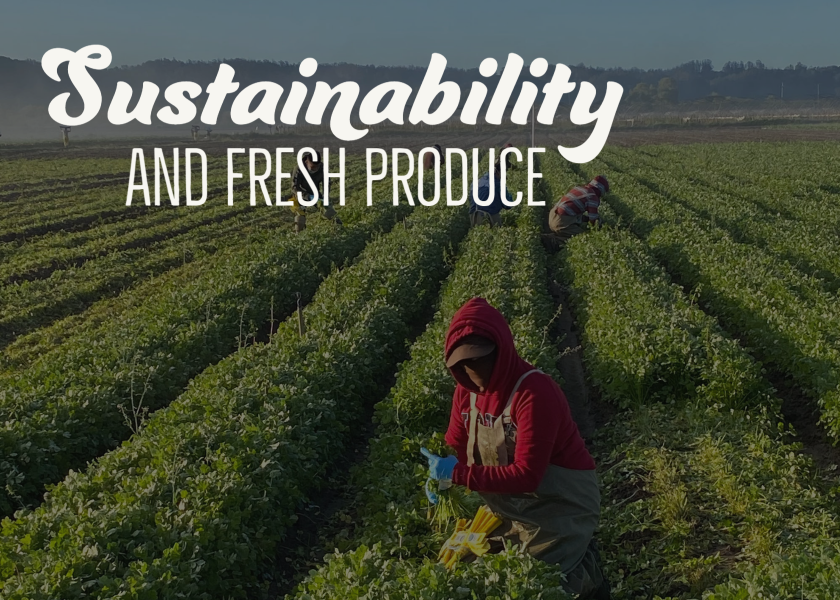Sustainability progress face challenges

There is no single answer as to what is the hardest part about executing sustainability measures to achieve environmental goals.
About 30 produce operators and solution providers surveyed by The Packer in May were asked the question, “What the hardest part of sustainability measures toward the environment?”
The multiple-choice answers, with percentage responses, were:
- Haven’t settled on what to measure: 33%;
- Lack of apparent market return: 19%;
- Too complicated: 7%; and
- Other: 41%
In its second year, this virtual education-focused event will deliver live networking events and 20+ sessions that will provide the best in-depth information on the issues and challenges that matter to your business, including: Water conservation and policy, Social responsibility, Carbon management, Best of marketing and merchandising, Packaging innovations, and Trends and data from The Packer’s annual sustainability survey.

“Other” explained
Carlos Lopez Flores, president of Chiquita Brands, was one of several produce operators opting to answer “other.”
“Currently, the most challenging part of sustainability measures is that there isn’t a standard,” Flores said.
“Companies can set their own targets and measure success, which can sometimes be misleading. That’s why Chiquita is so excited to be working with the Science Based Targets initiative (SBTi).”
Raw materials (used in sustainable products) are difficult to source and in some cases can double the price of traditional non-environmental product, said Scott Howarth, director of research and development at Sinclair International, Fresno, Calif.
Sustainability can’t exist in a vacuum, said Steve Roosdahl, vice president of operations for Vancouver, Canada-based The Oppenheimer Group. “In order for environmentally impactful programs to be successful in leaving a positive, lasting change, partnerships along the supply chain from farmworkers to retailers are essential, yet they can be a challenge.”
Himanshu Gupta, CEO and co-founder of ClimateAi, said it is hard to make a one-size fits all regulation or expectation when every crop, location and supply chain is different.
Michael Agostini, owner of Miago Produce Industry Services, said sustainability measures relating to the environment are extremely complicated with many moving parts.
“All are interrelated, and if one is incorrect, everything is out of whack,” Agostini said. “Along with that, there are a lot of differing opinions on which to include and how to weight them.”
Rachel Kenyon, senior vice president for the Fibre Box Association, said the organization is tasked with communicating and educating stakeholders to encourage box recycling. “We need local municipalities’ help with consumer education and Old Corrugated Containers (OCC) collection,” she said.
“Aside from making changes to becoming more sustainable, having the right tools and resources to measure the impact of these changes is challenging,” said Jennifer Doan, director of marketing for San Francisco-based Veritable Vegetable.
Getting consumer buy-in is a challenge for companies investing in environmental sustainability, said Robert MacArthur, president of climate remediation consumer reward shopping platform Soli, Cambridge, Mass.
Internal and external stakeholder buy-in can be a challenge for produce operators, said Nicole Flewell, director of sustainability for Taylor Farms, Salinas, Calif.
Changing customer/consumer expectations that are not always fully informed is difficult, said Gary Hilberg, chief sustainability officer for Hamilton, Mont.-based Local Bounti.
Measuring the trade-off between convenience, responsibility, and comfort in adopting proposed solutions is hard to do, said Abel Konan, economist with the Hawaii Department of Agriculture.
The cost premium for sustainable packaging can’t be an investment in margin, said David Bell, chief marketing officer for greenhouse marketer Houweling’s, Camarillo, Calif.







